Why Teach in Texas? A teacher shares his pathway to the profession.

Calago Hipps, M.S.
Secondary Education, Johns Hopkins University
Director of Instructional Coaching-Urban Teachers
How My Journey to Texas Teacher Certification Started
After successfully completing my studies in broadcast journalism and theater at Beloit College, I made the decision to return to my sunny home state of Florida. But instead of diving headfirst into a career, I chose a different path – a year of service with City Year, a remarkable education non-profit organization. This incredible opportunity not only allowed me to give back to my community but also opened my eyes to the transformative power of education, especially for historically marginalized communities.
As my service year drew to a close, I stumbled upon a groundbreaking teacher preparation program called Urban Teachers. It was just getting started with its very first cohort right here in vibrant Dallas, Texas. Intrigued and excited by the chance to make a difference in the lives of students, I packed my bags and embarked on a new chapter in the summer of 2016.
Since then, I’ve eagerly immersed myself in the rich educational landscape and dynamic political environment of Texas. It has been a whirlwind of growth and discovery as I’ve seized every opportunity to integrate myself into these fields. Each experience has further fueled my passion for education and has solidified my commitment to creating positive change for students who have historically been overlooked.
My journey from college to community service and now into the realm of teaching has been an exhilarating one. I am grateful for the chance to contribute to my community, advocate for education, and make a lasting impact on the lives of young Texans.
Teaching in Texas
One of the most vivid memories etched in my mind is the day I stepped into the classroom as the lead teacher. I can still see the radiant smiles on my students’ faces as they eagerly anticipated meeting their new teacher. The excitement in the air was palpable, and it filled me with a surge of energy and purpose.
Among the voices that still resonate within me, one in particular stands out. It was the voice of one of my Black male students, expressing his astonishment that he had only encountered a Black male teacher in physical education classes. He confessed that he had never even considered the possibility of having a Black male teacher for English. His innocent question struck a chord deep within me and has stayed with me ever since. It became one of the driving forces behind my commitment to a career in secondary literacy, to be a role model, and to show students from all backgrounds the diverse possibilities available to them.
Initially, my plan was to accumulate experience in the secondary education realm before venturing into higher education, a long-standing goal of mine. Through the transformative Urban Teachers program, I obtained my certification as a high school English teacher and proudly earned my Master’s degree from the esteemed Johns Hopkins University. But my journey didn’t stop there. Currently, I am in a full-time doctoral program at Grand Canyon University, delving into the complex field of higher education leadership. As a teacher, I firmly believe in the power of lifelong learning, allowing us to consistently expand our knowledge to better serve and support our students.
My “Why”
As I continue my academic pursuits and professional growth, I remain dedicated to the art of teaching and the profound impact it can have on young minds. Each day, I strive to be the kind of teacher who not only imparts knowledge but also nurtures a love for learning. By constantly seeking new knowledge and refining my skills, I aim to empower and inspire my students, equipping them with the tools they need to navigate the world with confidence and embrace a lifelong journey of education.
Mentoring New Teachers
After earning my Master’s degree, an exciting opportunity arose that prompted me to transition from teaching in K-12 to preparing aspiring teachers in higher education settings. Making this decision wasn’t easy, as my heart remained deeply attached to my students at the school where I taught. However, when I considered the broader perspective, I realized that by venturing into higher education, my impact could reach thousands of students, and the field of education could extend far beyond the walls of a high school classroom.
Just as I had that powerful moment on my first day as a teacher, I experienced a similar sensation when I took the leap into this new role. It was a defining moment that reaffirmed I was exactly where I needed to be. My passion for teaching not only persisted but flourished in this exciting new endeavor.
Shaping the minds and perspectives of future teachers fills me with a sense of purpose and fulfillment. I recognize that, by working in higher education, I have the potential to influence the teaching landscape on a broader scale. I have the chance to share my knowledge and experiences, guiding aspiring educators to become effective agents of change in their own classrooms.
As I immerse myself in this new role, my passion for teaching deepens. I am inspired and motivated when I see the growth and enthusiasm of prospective teachers. By guiding and supporting them in their journey, I not only impact their lives but also indirectly shape the lives of countless students who will benefit from their future teachers.
The Impact of My Journey
This shift in focus allows me to expand my impact and contribute to the development of the teaching profession as a whole. It has been a rewarding and fulfilling experience, as I continue to witness the transformative power of education and the incredible potential that lies within dedicated and passionate educators.
In this role, my dedication to education and teaching has reached new heights. It serves as a reminder that the journey of an educator is ever-evolving; each new opportunity affords the chance to make a positive difference in the lives of students and the field of education as a whole.
Benefits of Teaching in Texas
Teaching in both urban and private school settings has provided me with diverse and enriching experiences that have shaped my perspective on education. In urban schools, I encountered a dynamic and multicultural environment, where students faced unique challenges stemming from societal factors such as poverty and limited resources. It required me to be flexible and adaptable in my teaching approach, as I aimed to create a supportive and inclusive classroom for every student. Witnessing their resilience and determination in the face of adversity was truly inspiring.
On the other hand, teaching in a private school offered a different set of opportunities and dynamics. The resources and smaller class sizes provided a conducive environment for personalized instruction and individualized attention. The emphasis on academic rigor and extracurricular activities fostered a sense of excellence and high achievement among students. I had the privilege of witnessing their growth and witnessing their strong support systems, which played a significant role in their educational journey.
What I Have Learned by Teaching in Texas
Both experiences taught me the importance of meeting students where they are, tailoring my instruction to their unique needs, and fostering a positive and inclusive learning environment. Whether in an urban or private school, my ultimate goal remained consistent – to empower and inspire students to reach their full potential.
Teaching in these different contexts has broadened my understanding of the challenges and opportunities within the education system. It has reinforced my commitment to equity and access to quality education for all students, regardless of their background or socioeconomic status. These experiences have shaped me into a more versatile and empathetic educator, dedicated to making a meaningful impact on the lives of students, regardless of the educational setting they find themselves in.
Student Impact
John Dewey’s words perfectly capture my belief in the transformative power of education. I wholeheartedly agree that every child deserves a high-quality education that goes beyond rote memorization and instead nurtures their innate curiosity. In my view, schools should be vibrant spaces where mistakes are embraced, and questions serve as the currency for exploration and growth, fostering a dynamic relationship between students and teachers.
As educators, we have the immense responsibility of shaping the next generation of citizens. To fulfill this role effectively, our focus must extend beyond academic achievements alone. We must also prioritize the holistic development of our students, helping them navigate the complexities of the world beyond the classroom walls. It is only when we connect the dots between Scantron sheets and research papers with the real-world relevance and applicability that we truly engage the minds we aim to mold. Without this connection, these exercises can become mundane and unfulfilling.
While this philosophy aligns with the principles of progressivism, which were popularized by John Dewey, it is the personal experiences I’ve had throughout my own educational journey that have deeply influenced my belief in the importance of restoring education to its communal roots. I firmly believe that to fully develop our students’ potential, we must reestablish education as a collaborative endeavor, fostering strong community ties and engagement.
By fostering a sense of community, we can create an environment where students feel supported, empowered, and equipped to tackle the challenges they face. This communal approach not only enriches the educational experience but also prepares students to become active and conscientious contributors to society.
In my pursuit of education, I am driven by this philosophy and determined to make a lasting impact on the lives of my students. I aspire to be a facilitator, guiding and empowering them to become lifelong learners who are eager to explore the world and make meaningful contributions to their communities. By embracing the communal roots of education, we can unlock the true potential of our students and create a brighter future for all.
General Requirements for Certification in Texas
There are different pathways to earn a teaching certification in Texas. All pathways include content and pedagogy coursework. The coursework varies according to what subject area you are planning to teach. Texas also requires you to demonstrate your content and pedagogical knowledge through certification tests.
The clinical experience differs for each pathway. Student teaching usually requires a semester teaching in the content and grade level of the license you seek. The state allows for job-embedded clinical experience for those who already have earned a bachelor’s degree and are hired by a school district. They work as teachers while completing their requirements, which may include coursework and Texas teacher certification tests. The third type of clinical experience in Texas is an internship, which is an extended clinical experience while completing coursework and assessments.
How can Passage Preparation™ Help You Prepare for Certification in Texas?
Studying for Texas teacher certification tests can be challenging. When prospective teachers begin to prepare for their tests, a large part of their stress can relate to finding the right study materials. Passage Preparation provides comprehensive courses to prepare you for your certification test and ensure your test-taking needs are met. Here are some of my testing tips and tricks:
- Map out your study plan. Not only is the content important to know to be successful on the Praxis or edTPA Exam, but backward mapping is also an important skill as an educator. It is crucial to spend significant time reviewing the material. Passage Preparation’s asynchronous courses allow you to develop a study plan that best fits your personal and professional goals and responsibilities. By mapping out your study plan, you can accommodate for your current schedule and still master the content and standards you are required to demonstrate on your Texas certification test.
Review and evaluate your progress on your study plan as you prepare. Passage Preparation’s assessments throughout the course will help you determine content that you should revisit to develop mastery.









